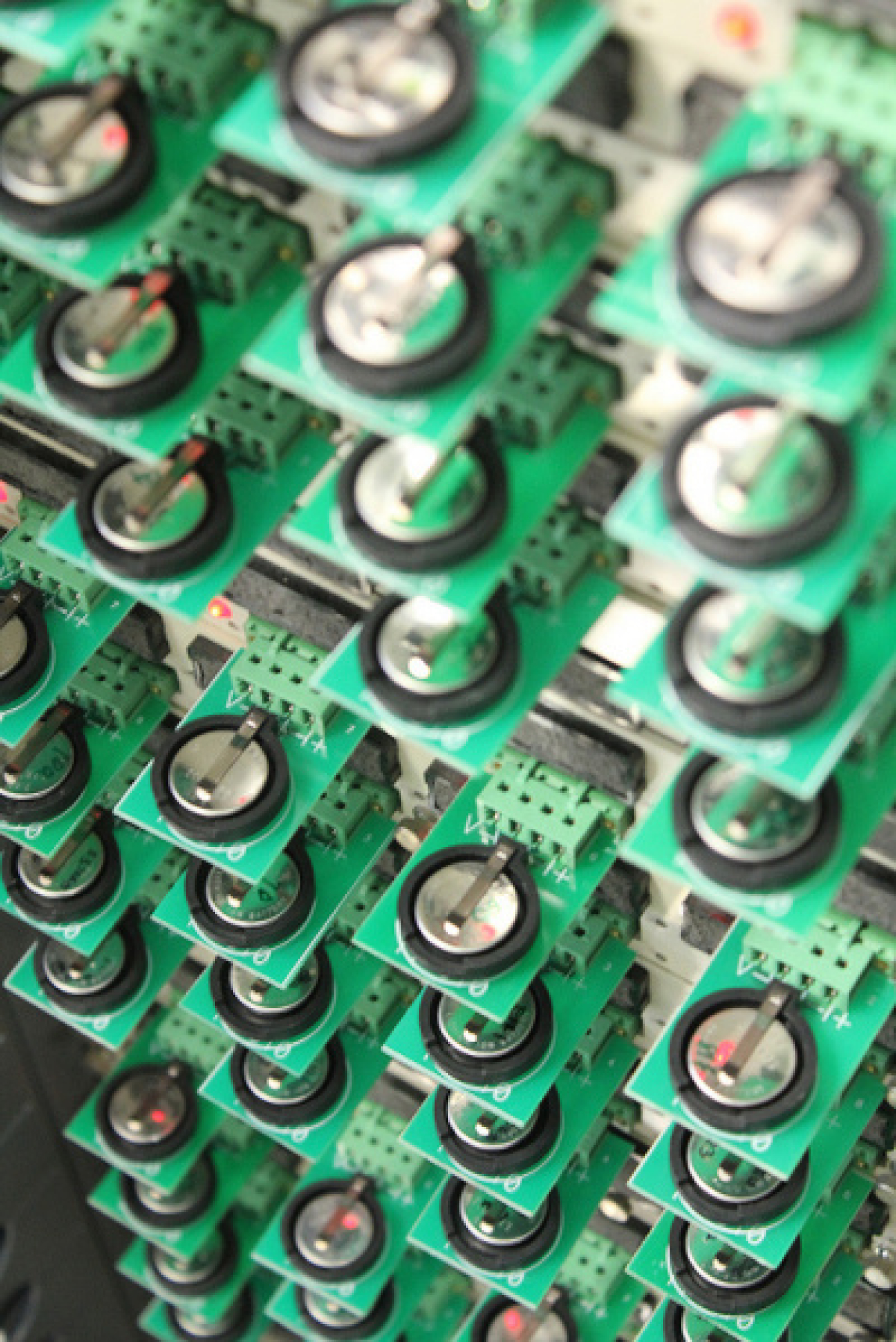Startups are a driving force of innovation in the clean energy sector. These companies are developing creative products and services that slash car...
Office of Energy Efficiency & Renewable Energy
October 3, 2014
SiNode Systems – Advanced silicon graphene batteries. | Photo courtesy of Sinode Systems.

NBD Nano works to develop advanced coatings that will control surface condensation, improving a variety of industrial uses from condensers to protecting electronics. | Photo courtesy of NBD Nano.

SolidEnergy works to develop materials that can increase the amount of energy that lithium-ion batteries store by 30 percent or more and lower costs enough to make electric vehicles affordable. | Photo courtesy of NREL.
Startups are a driving force of innovation in the clean energy sector. These companies are developing creative products and services that slash carbon pollution and move the clean energy economy forward.
It’s not an easy task. Startups often face uphill battles when moving these technologies from the laboratory to the marketplace. The Energy Department has invested in several initiatives that support clean energy entrepreneurs and small businesses, including the Innovation Ecosystem Initiative—a network of nonprofit- or university-led commercialization programs throughout the country focused on moving energy efficient and renewable energy technologies from university laboratories to the market—and the National Clean Energy Business Plan Competition—a series of regional and national contests that create a new generation of student entrepreneurs to address the nation’s energy challenges.
These two programs combined have served nearly a thousand ventures that have raised more than $150 million in funding in the last four years. And in the last few months, several startups that received support through these initiatives have had major achievements, including prestigious awards, acquisitions, venture raises, and the launch of critical development partnerships.
- HySense Technology, launched out of the University of Central Florida (UCF), was recently honored with the equivalent of an R&D Oscar award, R&D Magazine's R&D 100 Award, for its color-changing hydrogen leak detection tape. Since its formation, the company has received support from Innovation Ecosystem recipient UCF’s MegaWatt Ventures. HySense recently won $100,000 in the Florida Capital for the Acceleration of Technologies (CAT5) Awards competition, and started to generate revenues from sales to early adopter customers.
- SolidEnergy Systems, founded out of the Massachusetts Institute of Technology (MIT), recently received a R&D 100 Award for its solid polymer ionic liquid rechargeable lithium battery. SolidEnergy was one of six regional finalists in the inaugural 2012 National Clean Energy Business Plan Competition, and the company received technical support from Fraunhofer CSE's TechBridge – a program funded through the Innovation Ecosystem Initiative. To date, SolidEnergy has raised more than $4.5 million in venture funding and secured a strategic development partnership.
- NBD Nano, a nanotechnology company focused on durability and functionality of surface coatings for industrial uses, secured $5.2 million in venture capital. Like SolidEnergy, NBD Nano received technical support from TechBridge.
- SiNode Systems, an advanced anode battery company and the 2013 winner of the U.S. Department of Energy National Clean Energy Business Plan Competition, received a $1 million Energy Department Small Business Innovation Research Phase II grant and announced a Joint Development Agreement to commercialize graphene-based materials for lithium-ion batteries with AZ Electronic Materials – a business unit of Merck KGaA, Darmstadt, Germany. This marks SiNode’s second agreement with a major corporate partner.
- Dfly Systems (formerly Dragonfly Systems), a solar power electronics startup founded by Stanford University students has been acquired by SunPower. Dfly Systems placed third in the 2013 and 2014 Caltech First Look West Competition (FLoW), a regional competition in the National Clean Energy Business Plan Competition. This marks the second acquisition of a FLoW competitor by SunPower. Greenbotics, developer of robots that clean solar panels and the runner-up winner in the 2012 competition, was acquired in November 2013.
Startups are critical to advancing clean energy goals, and these companies have made enormous steps towards commercializing their innovative technologies. Learn more about the Technology-to-Market team and how the Energy Department supports clean energy entrepreneurs.

